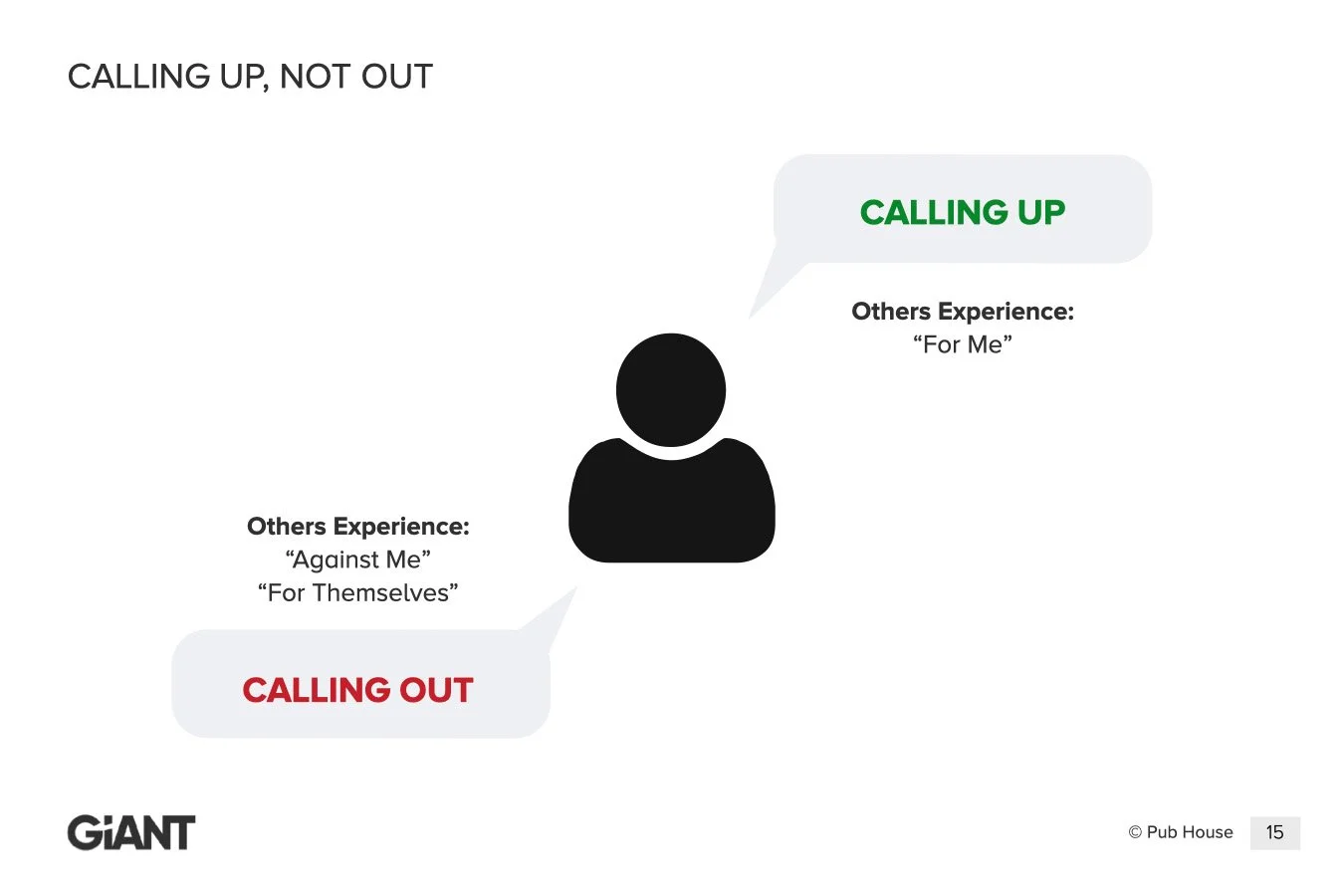Calling Up at Middle School Camp
Welcome to another Toolkit Tuesday! Every week, our goal is to give you a practical leadership tool to put in your toolkit. This week’s leadership lesson came from a group of sweaty, hilarious, middle school boys.
So There I Was…
Volunteering at the Compassion Christian camp last week with a group of middle schoolers. I led a group of 7th and 8th grade boys. They weren’t just campers—they were my guys. Red Squad! And from day one, I made one thing clear:
“You’re not little kids. You’re young men. I’m going to treat you like it. And I expect you to act like it.”
That single statement set the tone for the week. They rose to the challenge.
They were where they were supposed to be.
They looked out for each other.
They stood a little taller.
And they hydrated!
They owned their group and led with confidence. Not because I called them out when they messed up. But because I called them up from the very beginning.
The Challenge
Have you ever had a team member who made a mistake or dropped the ball—and your instinct was to call them out?
It’s tempting to correct someone by pointing out the failure. But often, the way we confront says more about us than it does about them.
When we lead from frustration, stress, or ego, our people feel it. They become defensive, disengaged, or even resentful.
And the long-term damage? You lose trust, stunt growth, and kill momentum across your team.
The Tool: Calling Up, Not Out
When someone drops the ball, it’s easy to call them out. It feels productive in the moment—but it usually backfires. Most of us have been called out before. It makes you feel like the leader is frustrated, against you, or just looking out for themselves.
But Liberating Leaders don’t lead with frustration. They lead with intentionality. They’re not against their team and they’re not just for themselves. They’re for their people’s highest possible good.
That’s what it means to call someone up. Instead of pointing out what someone did wrong… You speak to who they can become and invite them to rise.
Here’s how to lead with that kind of belief:
Start with identity → “I see you as someone who’s capable of more.”
Set clear expectations → “I’m holding you to this standard because I believe you can meet it.”
Challenge with care → Don’t sugarcoat but don’t shame. Be clear, firm, and for them.
Calling someone out might correct a mistake. Calling someone up creates a leader.
Why This Matters Now
When leaders default to calling out, it creates a fear-based culture. People become tentative. Morale dips. Initiative dies.
But when you learn to call people up, something powerful happens:
Accountability increases
Team members mature
Trust deepens And your influence expands
This isn’t soft leadership—it’s stronger leadership. Because it multiplies leaders, not just tasks.
The Result
Even a small shift, like speaking to someone's identity, can change the atmosphere of your team. Over time, you’ll notice people step up more often, handle feedback better, and push themselves to meet the standard.
And the best part? They’ll thank you for it. That’s the power of liberating leadership.
Take Action
This week, think of someone on your team who needs correction—but also has untapped potential. Don’t call them out. Call them up.
Let’s talk. Schedule a strategy call to discuss how elevating your leadership approach can unlock ownership, initiative, and growth across your team.
Closing the Loop
Oh—and bonus leadership lesson:
Don’t stand too close to middle schoolers during disc golf.
A kid launched a disc straight into my face. I’m rocking a full black eye this week. Turns out, proximity without awareness still hurts. (Don’t assume your people know where to aim unless you’ve trained them first.)
Lead hard!

